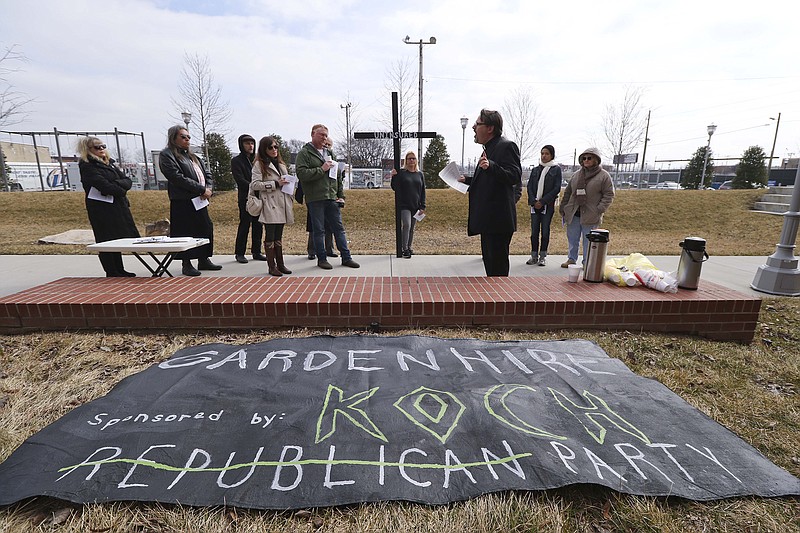NASHVILLE -- An effort to revive Republican Gov. Bill Haslam's Insure Tennessee proposal received a positive recommendation in a Senate subcommittee Monday.
The resolution sponsored by Democratic Sen. Jeff Yarbro of Nashville would authorize Haslam to pursue his plan to extend health coverage to 280,000 low-income Tennesseans. The governor's original proposal was defeated in a Senate committee in a special session in February.
The votes in favor of the measure Monday came from Yarbro and Republican Sens. Doug Overbey of Maryville and Richard Briggs of Knoxville. Yarbro and Briggs also voted in favor of the proposal when it failed in the special session, while Overbey was the measure's sponsor.
Haslam spokesman David Smith says the governor supports the latest effort to bring the Insure Tennessee proposal back on track.
"As the governor has said, the problem hasn't gone away, and he obviously supports efforts to address the issue," Smith said in an email.
Republican Sens. Joey Hensley of Hohenwald and Bo Watson of Chattanooga voted against the resolution.
The measure now moves to the Senate Health Committee, which has a different makeup than the specially appointed panel that rejected the Insure Tennessee proposal on a 7-4 vote last month.
Four senators on the nine-member committee have now voted in favor of the measure either in the special session or in the subcommittee. Supporters will need to find at least one more vote to get the bill to advance out of the full committee.
The panel approved several changes to the resolution proposed by Briggs that he said would address concerns raised about Haslam's proposal during the special session. They included:
* Adding a "lockout provision" for enrollees who fail to pay premiums, similar to one approved for Indiana's plan.
* Calling on Haslam to wait to put the plan into effect until after a U.S. Supreme Court ruling on health insurance exchanges.
* Requiring written confirmation from the Centers for Medicare and Medicaid Services that Tennessee could drop out of the program if costs outstrip expectations.
Yarbro opposed the amendments.
"We're interjecting delay," he said. "While this resolution addresses some of the concerns that have been raised, I worry that we'll just start seeing another round of concerns after this."
Overbey defended Briggs' amendments as "common-sense suggestions that will take us further down the road than unfortunately we were able to get during the special session."
Under Haslam's two-year pilot proposal, state hospitals agreed to cover the $74 million state share to draw down $2.8 billion in federal Medicaid money.
Tennessee Hospital Association President Craig Becker has said the influx of federal money would be "a lifeline for hospitals," which are facing the loss of $7.8 billion over the decade following the passage of the federal health care law.
Opponents of the Insure Tennessee proposal said they objected to adding to the federal debt by drawing down the money under President Barack Obama's health care law. They say they don't trust the federal government to keep promises to allow Tennessee to withdraw from the plan if it ends up being more expensive than expected.
